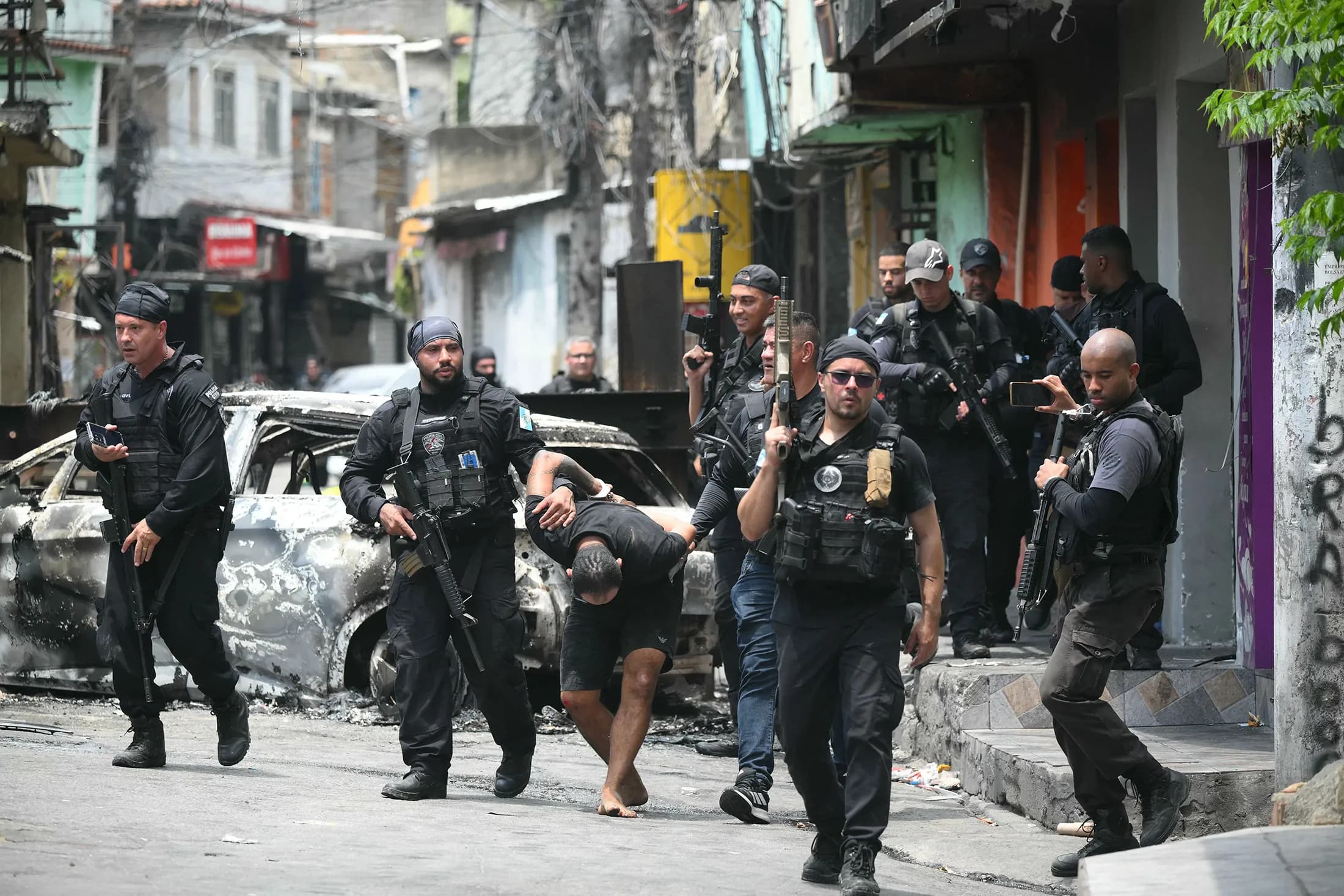We're loading the full news article for you. This includes the article content, images, author information, and related articles.
A massive police operation in Brazil targeting a powerful crime syndicate has left at least 64 people dead, drawing condemnation from the UN and raising critical questions about heavy-handed security tactics in urban areas, a persistent challenge in Kenya.

A police operation in Rio de Janeiro on Tuesday, 28 October 2025, has resulted in at least 64 fatalities, making it the deadliest in the city's history and prompting international condemnation. The raid, codenamed 'Operation Containment', involved approximately 2,500 civil and military police officers targeting the Red Command (Comando Vermelho) crime syndicate in the northern suburbs of Alemão and Penha.
According to a statement by Rio State Governor Cláudio Castro, the dead included four police officers and 60 individuals described as suspected criminals. The operation also led to the arrest of more than 80 people. Fierce gun battles erupted around 4 a.m. local time (10 a.m. EAT) as security forces, supported by armored vehicles and helicopters, entered the densely populated favelas, which are home to an estimated 300,000 people. Officials reported that gang members retaliated with heavy gunfire, burning barricades, and for the first time, used weaponized drones to drop explosives on police units.
Governor Castro defended the operation, declaring the city "at war" with what he termed "narco-terrorism." He stated the mission was the largest in the state's history and was designed to capture Red Command leaders and counter the gang's territorial expansion. The Red Command is one of Brazil's oldest and most powerful criminal organizations, involved in drug trafficking and extortion.
The high death toll immediately drew sharp criticism from human rights organizations. The United Nations Human Rights Office stated on Tuesday that it was "horrified" by the violence. "This deadly operation furthers the trend of extreme lethal consequences of police operations in Brazil's marginalized communities," the UN office wrote, urging prompt and effective investigations. Human Rights Watch described the event as a "huge tragedy" and a "disaster," calling for the public prosecutor's office to investigate the circumstances of each death. This incident surpasses the previous deadliest raid in Rio's history in May 2021, which resulted in 28 deaths in the Jacarezinho favela.
The events in Rio de Janeiro, while geographically distant, resonate with ongoing challenges related to urban crime, policing strategies, and human rights in Kenya. Heavy-handed security operations in densely populated, low-income areas are a recurring issue in both nations. Kenyan rights groups have long documented cases of extrajudicial killings and excessive force by police, particularly in informal settlements in Nairobi and other urban centers. According to a report by several human rights organizations, Kenyan police were responsible for 118 extrajudicial killings in 2023.
Like the favelas of Rio, Kenya's informal settlements are often characterized by poverty, high youth unemployment, and the presence of organized criminal gangs, creating complex security challenges. The response by security forces in Kenya has often been criticized as being overly reliant on lethal force rather than community-based, intelligence-led approaches. President William Ruto has publicly stated his administration's commitment to ending extrajudicial killings, yet rights groups maintain that impunity remains a significant problem.
The Rio raid highlights a global debate on the effectiveness and human cost of militarized policing in combating organized crime. Critics in Brazil argue that such deadly operations are ultimately ineffective at dismantling criminal structures, as slain low-level members are quickly replaced. This mirrors arguments made in Kenya, where the 'shoot-to-kill' policy has been criticized for failing to address the root causes of crime, such as poverty and inequality, while fostering deep mistrust between communities and the police. The use of overwhelming force, as seen in Operation Containment, often results in civilian casualties and further alienates marginalized communities, complicating long-term security efforts. As Kenyan authorities continue to grapple with urban crime, the tragic outcomes of the Rio raid serve as a critical case study on the profound and often devastating consequences of prioritizing force over comprehensive, rights-respecting security strategies.
Keep the conversation in one place—threads here stay linked to the story and in the forums.
Sign in to start a discussion
Start a conversation about this story and keep it linked here.
Other hot threads
E-sports and Gaming Community in Kenya
Active 9 months ago
The Role of Technology in Modern Agriculture (AgriTech)
Active 9 months ago
Popular Recreational Activities Across Counties
Active 9 months ago
Investing in Youth Sports Development Programs
Active 9 months ago